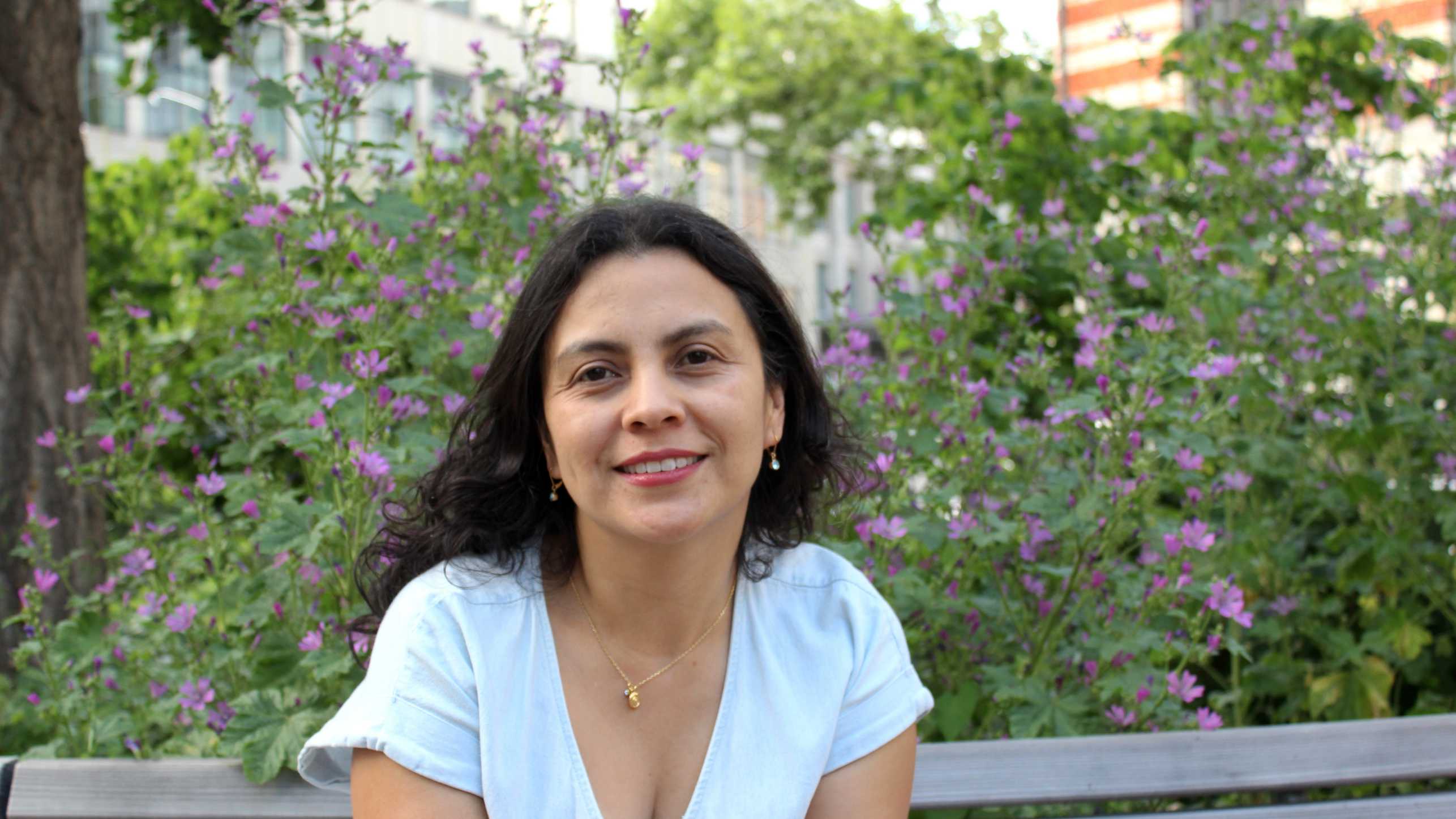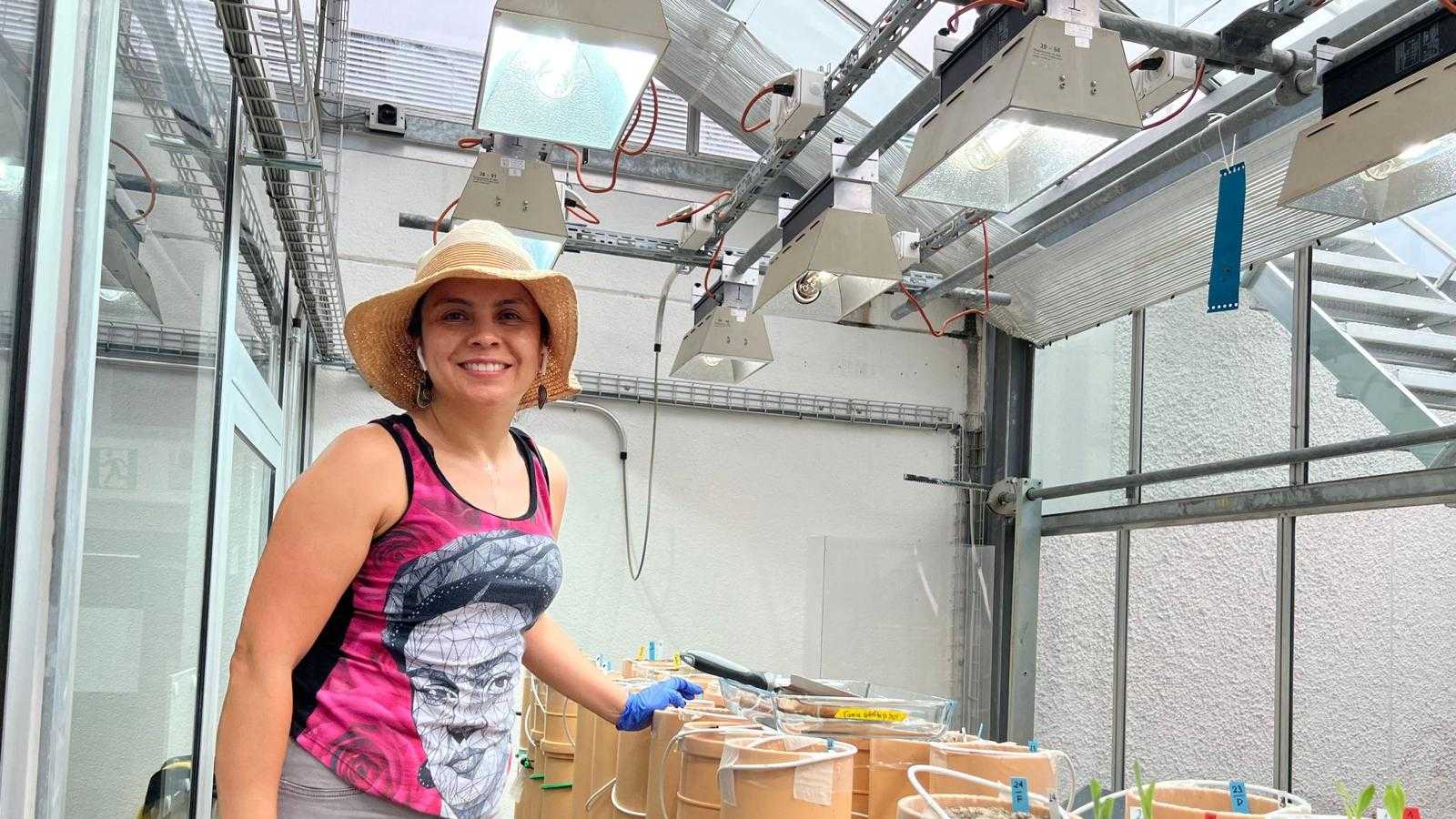Meet Tania Galindo Castañeda

“My work is driven by my passion for exploring promising applications of root-microbe interactions in agriculture. I also value inclusiveness and it is part of my daily work goals.”
Let’s meet Tania Galindo-Castañeda, researcher in the SAE group. Tania is a biologist from Colombia, and she obtained a master’s degree in microbiology. She expanded her knowledge and experience about roots and their interaction with microbes during her PhD at the Pennsylvania State University. The goal of her current project MICROSEL is to find connections between plant adaptations and microbes for abiotic stress tolerance.
When did your passion for root-microbe interactions begin?
“Everything began when I attended an inspiring chemistry class during my bachelor’s studies. A passionate and knowledgeable professor explained the mechanism of nodule formation in the roots of soybean when associated with the Rhizobium bacteria and its importance for nitrogen fixation, which is the process of transforming atmospheric nitrogen into other forms of nitrogen useful for plant growth. I immediately thought: « This is fascinating. I could devote my life to the study of this topic! ».”
Did you have other experiences in this field before your PhD?
“Yes. I studied microbe-based control of pests in crops, and I worked on the interaction between mangroves and microbes in the Caribbean for my bachelor’s thesis. After my studies, I helped to set up a lab to work on the production of biofertilizers for oil palms. The use of microbes as promoters of plant tolerance to stress is for sure the red thread that I followed in my career.”
What do you think about your current work environment?
“I find it nice to work in a place where I can rely on the support of knowledgeable people and highly qualified technicians, and where I am assisted by the help of the SAE group members when needed. Also, I appreciate the emphasis on interactions and socialization both at work and in my private life. And I value that the culture around a good work-life balance is well supported at ETH and in Switzerland.”
What do you find valuable both in your life and at work?
“I strongly support inclusiveness, and I would like that academia could grow even more in this respect. I also advocate for including more women in research and I try to involve students with different cultures and backgrounds in my research activities. I believe that looking at the person behind the researcher or the employee is important.”
If you are curious to know more about Tania’s research, visit the external page project website.
You can contact her via e-mail for more questions:
